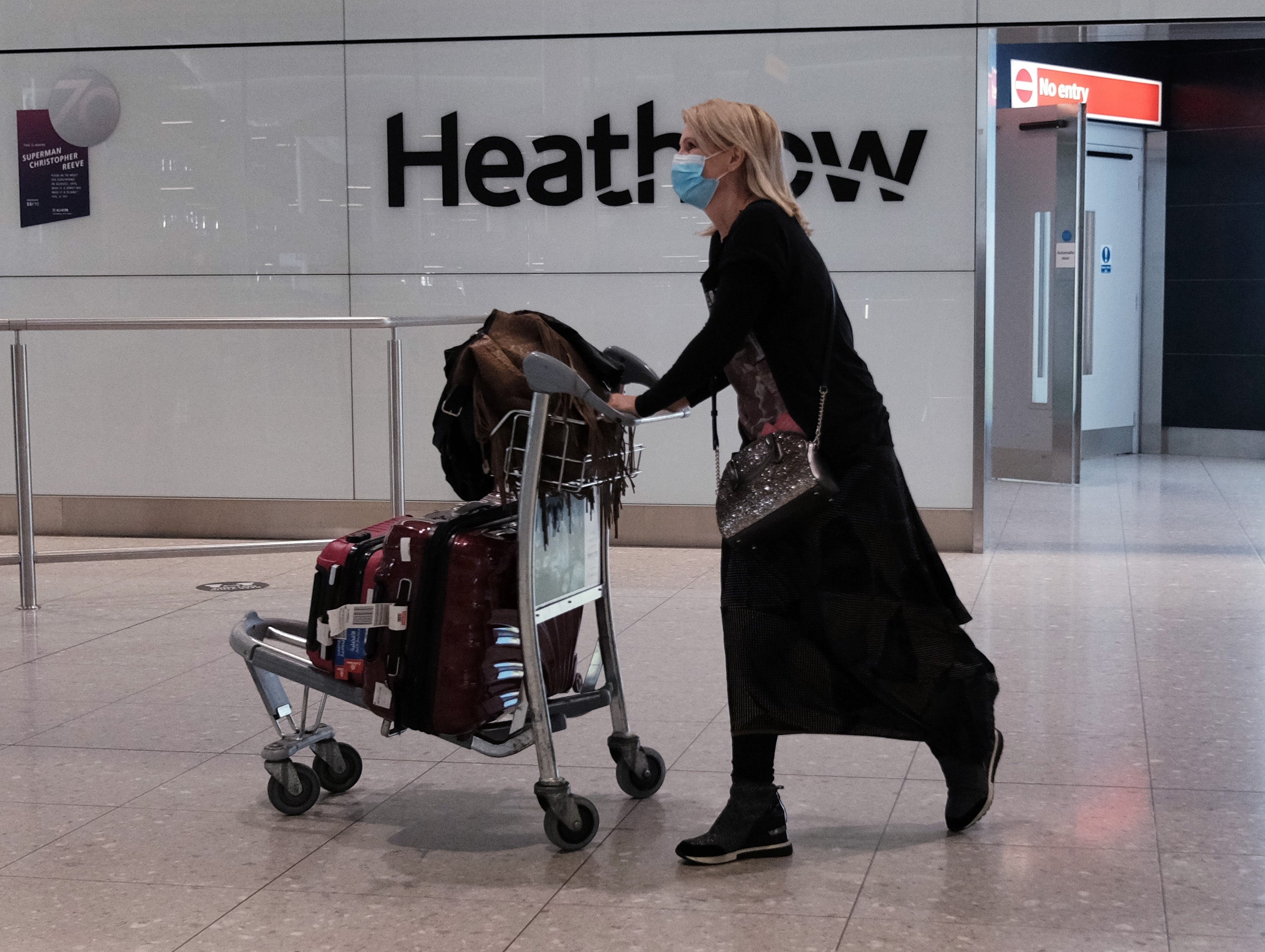Heathrow to raise passenger charges by up to 76%
The aviation regulator unveiled plans to allow the airport to increase its average charge per passenger to as much as £34.40.

Your support helps us to tell the story
From reproductive rights to climate change to Big Tech, The Independent is on the ground when the story is developing. Whether it's investigating the financials of Elon Musk's pro-Trump PAC or producing our latest documentary, 'The A Word', which shines a light on the American women fighting for reproductive rights, we know how important it is to parse out the facts from the messaging.
At such a critical moment in US history, we need reporters on the ground. Your donation allows us to keep sending journalists to speak to both sides of the story.
The Independent is trusted by Americans across the entire political spectrum. And unlike many other quality news outlets, we choose not to lock Americans out of our reporting and analysis with paywalls. We believe quality journalism should be available to everyone, paid for by those who can afford it.
Your support makes all the difference.Heathrow has been given the go-ahead to hike passenger charges by up to 76%.
The Civil Aviation Authority (CAA) announced its plan to raise the cap on the west London airport’s average charge per passenger from the current level of £19.60 to between £24.50 and £34.40.
The airline industry branded Heathrow a “monopoly-abusing hub airport”.
Under the proposals, the exact charge will depend on factors such as passenger demand and commercial revenue, with prices higher if Heathrow continues to struggle in those areas.
The range is planned to come in effect from summer 2022, with an interim cap of £30 being introduced on January 1.
Charges are paid by airlines but are generally passed on to passengers in air fares.
Luis Gallego, chief executive of British Airways’ parent company IAG said Heathrow is “already the world’s most expensive hub airport” and the “disproportionate increase” in passenger fees compared with other European hubs will “undermine its competitiveness even further and UK consumers will be losing out”.
His counterpart at Virgin Atlantic, Shai Weiss, claimed the CAA’s proposals “fail to protect the British consumer, paving the way for Heathrow Airport to introduce unacceptable charges”.
He accused the airport’s owners of seeking to “secure hundreds of millions in dividends to shareholders”.
He added: “We will oppose these proposals in the strongest terms to protect passengers.”
Tim Alderslade, chief executive of trade body Airlines UK, said the CAA is the industry’s “last line of defence against a monopoly-abusing hub airport”.
He continued: “Monopolies will always try it on and that’s why we need a strong regulator to clamp down on what is blatant gouging.”
CAA chief executive Richard Moriarty said: “Our principal objective is to further the interests of consumers while recognising the challenges the industry has faced throughout the Covid-19 pandemic.
“These initial proposals seek to protect consumers against unfair charges, and will allow Heathrow to continue to appropriately invest in keeping the airport resilient, efficient and one that provides a good experience for passengers.”
Heathrow had called for the cap to range from £32-£43 for the five-year period being consulted on.
The airport said in July that its losses from the Covid-19 pandemic had hit £2.9 billion.
Passenger numbers in September were just 38% of pre-pandemic levels.
A Heathrow spokesman said: “While it is right the CAA protect consumers against excessive profits and waste, the settlement is not designed to shield airlines from legitimate cost increases or the impacts of fewer people travelling.”
He added that the “power of private investment” has led to the airport being ranked by passengers as one of the best in the world, and for this to continue “the settlement should safeguard a fair return for investors”.
Heathrow’s owners include sovereign wealth funds from China and Qatar, Spanish construction firm Ferrovial and large infrastructure funds.
The airport has reportedly paid out nearly £4 billion in dividends to shareholders since 2012.
The CAA’s consultations on the interim price cap and the wider proposals will run until November 17 and December 17 respectively.